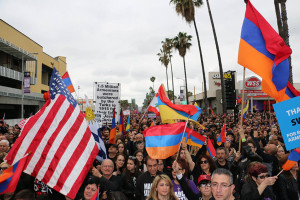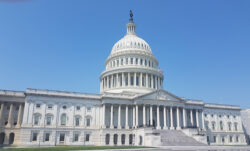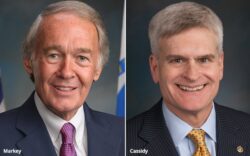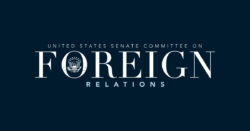FBI Raid Co-Chair of the Congressional Azerbaijan Caucus Rep. Henry Cuellar’s Home
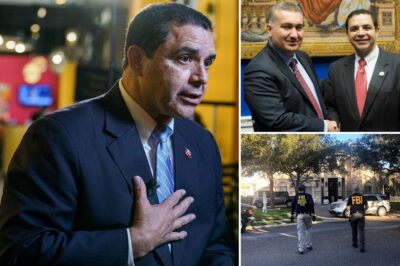
The FBI on Wednesday raided Co-Chair of the Congressional Azerbaijan Caucus, Democratic Congressman Henry Cuellar’s home and campaign office in Texas as part of a wide-ranging federal probe relating to the form.er Soviet state of Azerbaijan and several U.S. businessmen
According to various media outlets federal grand jury probe that led to the raid of Congressman’s home and office in Texas this week has begun issuing subpoenas, seeking records about a wide array of U.S. companies and advocacy organizations, many of them with ties to Azerbaijan.
Among the information being sought, according to one subpoena reviewed by ABC News, are records related to the congressman, his wife Imelda, and at least one of his campaign staffers. The subpoena also asks for records relating to any “work, act, favor, or service” that Cuellar or his wife may have provided at the behest of certain foreign companies, government officials, American business leaders, or others.
Cuellar, who represents Texas’ 28th Congressional District along the U.S.-Mexico border, has been in Congress since 2005, and has had extensive connections with Azerbaijan. In recent years he has served as a co-chair of the Congressional Azerbaijan Caucus, and repeatedly met with officials affiliated with the Azerbaijani dictatorship.
And notably, there’s one government trip to Azerbaijan in 2013, as The Intercept first reported Friday night, that has already resulted in a campaign donor pleading guilty to lying to Congress five years later.
While Cuellar wasn’t on that particular trip, one of his staffers was. And just four months earlier, Cueller and his wife, Imelda, embarked on a junket to Turkey and Azerbaijan to see the sights, meet top leaders, and promote economic and geopolitical cooperation between the countries and the United States, according to congressional disclosures.
While in the Azerbaijan capital of Baku, they met with the country’s Dictator Aliyev and, after lunch, headed to the State Oil Company of Azerbaijan Republic for a briefing. Then it was on to parliament to meet with other members of the Azerbaijani regime.
The tab for the nine-day jaunt—$26,145.26—was picked up by Turquoise Council of Americans and Eurasians, a Houston-based non-profit that aimed to facilitate this cultural exchange, and approved by the congressional Ethics Committee, according to public records.
After the trip, the head of that organization, a U.S. citizen named Kemal Oksuz, helped fund a second trip four months later. Cuellar was not on that second trip, but a larger delegation—10 congressional colleagues—were. Instead, Cuellar met with the Azerbaijan ambassador in D.C., Suleymanov according to a press release from his office.
Two years later, Oksuz contributed $2,000 to the Cuellar campaign, Federal Election Commission records show. He’d previously donated $1,500, six months before Cuellar’s trip.
But that second trip gave rise to a criminal indictment against Oksuz. It turned out that his group had not paid for it, but had funneled the funds—$750,000—from the State Oil Company of the Azerbaijan Republic, a government-owned entity.
He then lied to the House Ethics Committee to cover up the fact, and in 2018, Oksuz pleaded guilty to federal charges for those lies. The Ethics Committee later cleared the members who participated in the second trip of any wrongdoing, saying the lawmakers acted “in good faith” and that the Ethics Committee never conclusively established the true source of the funds for the trip.
But Cuellar’s trip appears to have left an impression. One month later, he took to the House floor and praised Azerbaijan—taking particular care to extoll the country’s oil industry.
Cuellar, curiously, went on to take up an interest in academic exchange programs between the U.S. and Azerbaijan—and worked with Oksuz to do it. In 2015, Cuellar announced an exchange partnership between Texas A&M and one of the organizations Oksuz had used to disguise money from SOCAR, the government-owned oil company.
Cuellar has taken an abiding interest in Azerbaijan. He continues to co-chair of the Azerbaijan Congressional Caucus, and has provided a strong voice for the country’s dictatorial government. He signed a letter as recently as last April advocating for aid (including demining fund) for the Republic of Artsakh (Nagorno-Karabakh) be funneled through Azerbaijan; the letter was distributed by a lobbyist at DC firm BGR.
In September 2020, Azerbaijan unleashed the large-scale military aggression, as well as extrajudicial executions of civilians, and varying forms of international and human rights abuses, including the utilization of cluster bombs and white phosphorus against the civilian inhabitants of the Artsakh.
As for the aforementioned “overseas scholarships,” Cuellar has also regularly joined the Azerbaijan ambassador at educational functions, including at a local San Antonio university. And just last year the president of tiny Laredo College, in Cuellar’s hometown, boasted in an open letter that he had met with “multiple international dignitaries” during a recent trip to Azerbaijan.
Perhaps even closer to home, Cuellar also scored a semester exchange in Azerbaijan for one of his 2020 interns. Another Cuellar intern: Kemal Oksuz’s son, who was hired in 2019, six months after his father pleaded guilty.
The dictatorial regime of Azerbaijan has a history of channeling oil revenue towards foreign politicians deemed as desirable to its efforts in white washing Azerbaijan’s dismal human rights records in the international arena.
Known as the Azerbaijani Laundromat — so called because the vast sums that passed through it were laundered through a series of shell companies to disguise their origin. The project reveals the many uses to which the country’s kleptocratic ruling clique puts some of its billions. Among other things, the money bought silence by paying off European politicians, journalists and media outlets.
European politicians implicated the Azerbaijani Laundromat hailed from Belgium, Germany, Italy and Slovenia, while reports of reputational laundering touch Bulgaria, Czech Republic, Denmark, Estonia, France, Hungary, Russia, Switzerland and the United Kingdom.
